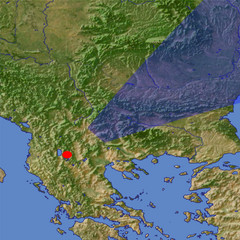 Leading analysts studying developments in the Balkans have stressed that a request by Serbia for the extradition of former Bosnian Vice President Ejup Ganic from the UK on a Serbian war crimes warrant was politically motivated to gain ground in the face of international pressure over alleged violations of the international rules of war.
Leading analysts studying developments in the Balkans have stressed that a request by Serbia for the extradition of former Bosnian Vice President Ejup Ganic from the UK on a Serbian war crimes warrant was politically motivated to gain ground in the face of international pressure over alleged violations of the international rules of war.
Speaking to Today’s Zaman, specialists on the Balkans and the peace-building process in the region drew attention to the politicized nature of the Serbian decision. Gözde Kılıç Yaşın from the Turkish Center for International Relations and Strategic Analysis (TÜRKSAM) based in Ankara said the background of Serbia’s request from the UK was significant. “It is quite interesting that Serbia demanded Ganic’s extradition amid huge pressure due to Radovan Karadzic’s prosecution,” stated Yaşın. Wartime Bosnian Serb leader Karadzic took the stand at his war crimes trial to “deny” responsibility for some of Europe’s worst atrocities since World War II on the same day Ganic was arrested in London.
Yaşın added that what Serbia was merely trying to do was send a message to the world that it was not only Serbs who committed war crimes. “Serbia was trying to confuse culprits and the innocent. If it was really seeking to prosecute a suspected war criminal, it would have asked the Bosnian authorities first rather than a third party. The message Serbia wanted to send was that war crimes were not committed on their side alone,” she noted. The warrant against Ganic was issued by a Serbian court; however, the case against Karadzic has been handled by the UN’s International Criminal Tribunal for the former Yugoslavia (ICTY). Professor Murat Çemrek from the Institute of Strategic Thinking (SDE) in Ankara joined Yaşın in her criticism in labeling the decision as political but further argued that it could also be a maneuver to appease the Serbian nationalists who don’t feel so comfortable about the ongoing Turkey-anchored normalization process with Bosnia. “It appears that Serbia’s move was also meant to serve domestic political interests,” he said. Turkey initiated the trilateral meetings with Serbia and Bosnia and Herzegovina on Oct. 10, 2009, the fifth convening of which took place last month.
Belgrade first accused him of ordering the killing of over 40 Yugoslav soldiers during the attack on a convoy but then reduced the number to 18. The UN war crimes tribunal in The Hague dismissed the allegations that war crimes were committed during the attack on the convoy.
Today’s Zaman – 13.03.2009

Leave a Reply